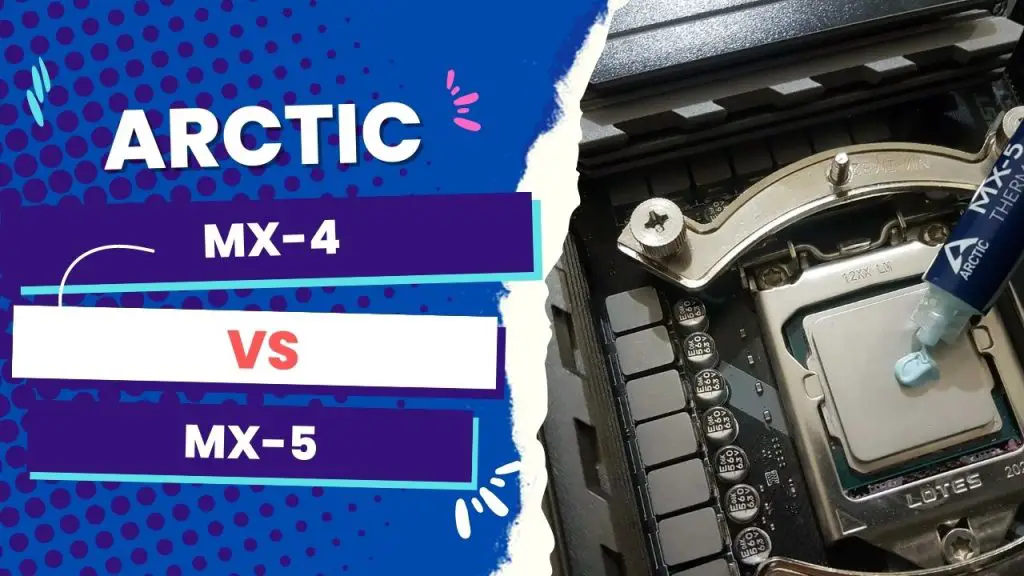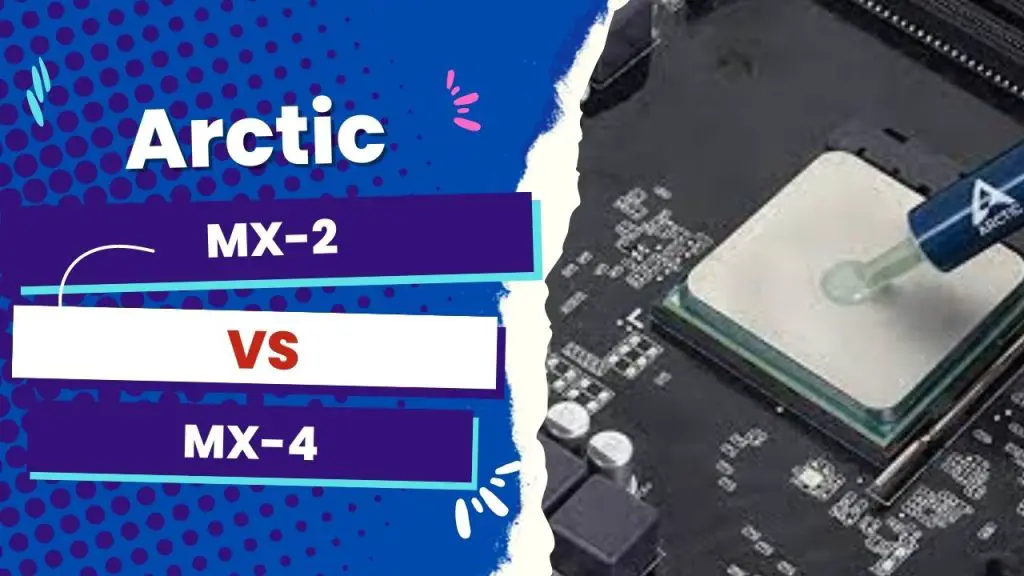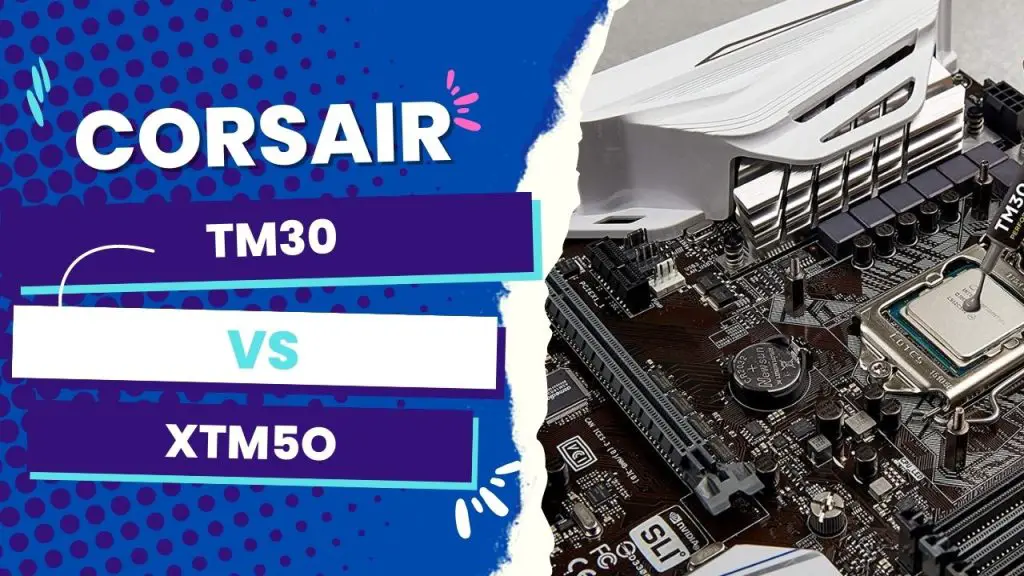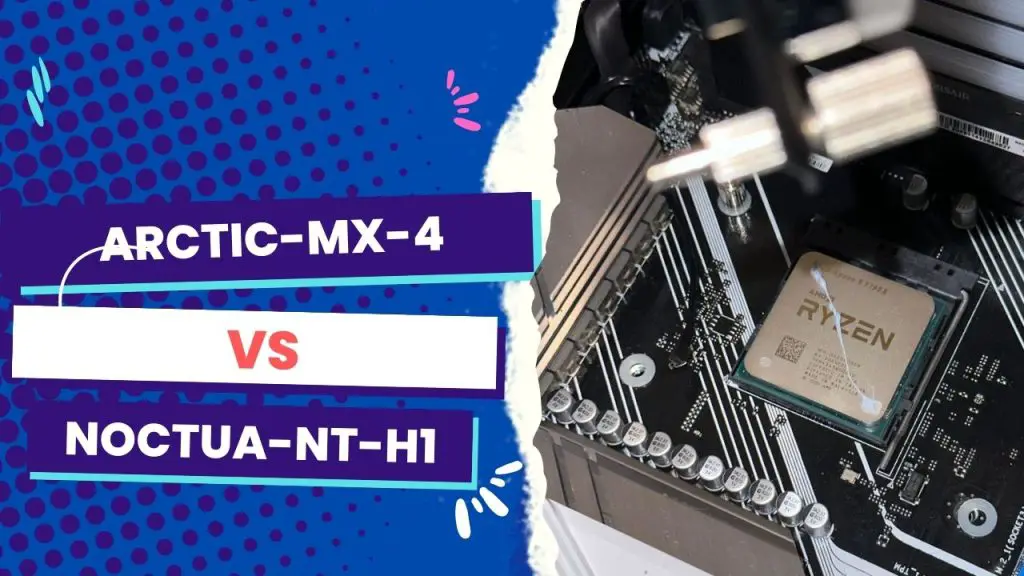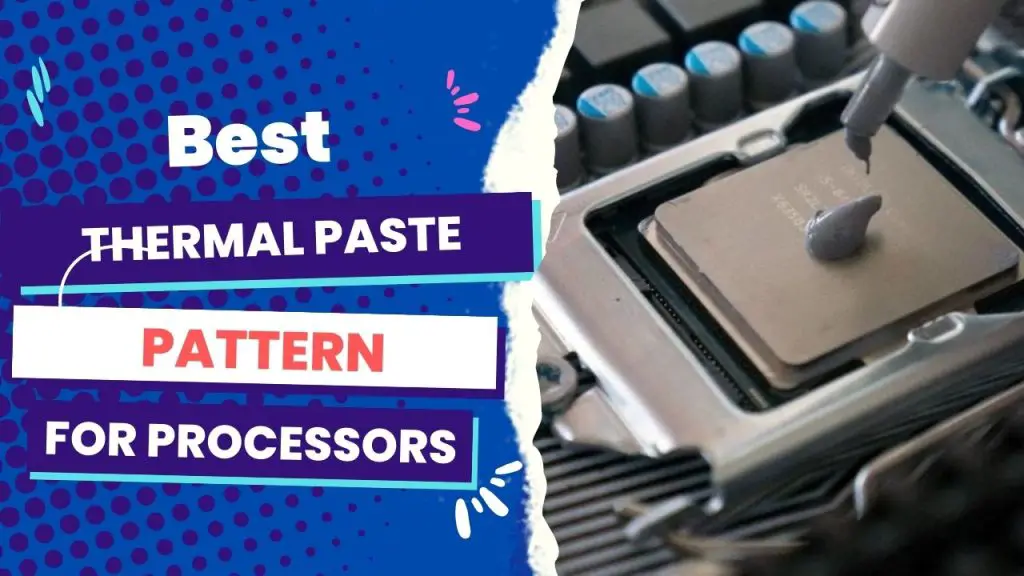The Arctic MX-5 thermal paste is a non-reflective and non-conductive thermal paste that has demonstrated a 1°C temperature improvement over the Arctic MX-4 in testing. Additionally, the MX-5 is less dense, making it easier to clean up and separate the CPU and cooler during maintenance compared to the MX-4. While the MX-4 spreads and fills very well. On the other hand, both pastes are easy to clean with alcohol and cotton swabs.
But there are a few more crucial differences to these points that would most likely influence your purchasing decision.
Many people looking to buy a thermal paste from the Arctic usually ask,
- “How does the new MX-5 thermal paste compare to the previous MX-4?”
- “Is it better?”
- “If so, to what extent?”
For the record, the MX-4 is a decent thermal paste. But with the introduction of its successor, it makes us wary of which is now worth our investment. In this post, you will learn everything there is to know about it, from temperature performance to ease of application to even price differences.
Arctic MX-4 And MX-5 Compared
The Arctic MX-4 has a thermal conductivity of 8.5 W/mK thermal conductivity and is made of carbon microparticles. On the other hand, the MX-5 product has a thermal conductivity of 8.9 W/mK.
After testing both products, here is what I noticed that stood out about the two products:
| Specification | Arctic MX-5 | Arctic MX-4 |
| Materials | 99.9% pure silver | Carbon Microparticles |
| Continuous temperature limits | –50°C to 130°C | -50~150 °C |
| Temperature Difference Between CPU and Cooler Base | 15.58°C | 5.51°C |
| Thermal Conductivity | 8.9 W/mK | 8.5 W / mK |
| Curing Time | 200 hours | No Curing Time |
| Image | Product | Detail | Price |
|---|---|---|---|
 | ARCTIC MX-4 |
| Check Price On Amazon |
 | ARCTIC silver 5 |
| Check Price On Amazon |
Now, to the depths of the review:
Arctic MX-4 Or MX-5: Overall Performance
Viscosity
Looking at the technical specifications outlined on the Arctic website, the MX-5 has a lower viscosity but a higher density than the MX-4. So it is easier to apply and clean up. You will find it easier to separate your cooler from your CPU with the MX-5 thermal paste.
Color
The MX-5 has a unique blue color, whereas the MX-4 has a dual gray color. But white thermal pastes show that they are mostly made of silicone compounds, which don’t transfer heat very well.
However, a thermal paste’s color does not indicate its thermal conductivity. In other words, the color doesn’t matter as long as they achieve a consistent, smooth, and evenly distributed surface across the CPU surface.
This leads us to the next comparison factor.
Application
How you rate the application ease of the MX-4 and MX-5 thermal pastes depends on the method you prefer to layer the paste on the CPU. For example, I like to manually spread the thermal paste across my CPU surface so I can effectively cover every portion of the heat spreader.
Despite the supposed higher viscosity, the MX-4 thermal paste glides quickly over the CPU’s surface.
Meanwhile, as I applied the MX-5 paste, I noticed that it was much stickier and did not glide across the surface as smoothly as other pastes on the market.
Temperature test
The comparison between these two products is not complete without an actual test to see how they perform regarding temperature regulation and heat dissipation.
After testing my CPU at 10-watt power limit intervals (between 45 and 75 watts) and the GPU power limit locked, I had to replace the thermal paste of the MX-4 and MX-5 three times at individual testing.
The MX-4 temperature drop was slightly lower with the MX-5 paste compared to that of the MX-4 paste.
Longevity
According to the Arctic, you can expect the MX-4 and MX-5 thermal pastes to last for eight years if left undisturbed.
However, longevity depends on the cooling demands, as many other hardware components factor into this concept.
In terms of longevity, both products perform admirably. That’s a perk of choosing a well-known brand.
Price
There is a significant difference between the MX-4 and MX-5 thermal pastes. With the latter costing a little more, the price of both products depends on their size. What is the price difference between the Arctic MX-4 and Arctic Silver:
| PRICE | ||
| WEIGHT | Arctic MX-4 | Arctic MX-5 |
| 2 grams | €7 | €7.5 |
| 20 grams | €20 | €22 |
Meanwhile, the price can also vary slightly based on the channel you choose to purchase from. For example, I got the MX-4 on Amazon for $13, which was relatively more expensive than the MX-5, which sold for $11.85 in the same online store.
Pros and Cons of Using the Arctic MX-4
| PROS | CONS |
| The paste won’t dry out. | low shelf life |
| offers top-notch cooling | |
| Suitable for overclocking needs | |
| It is metal-free and can last for eight years. |
ARCTIC MX-4
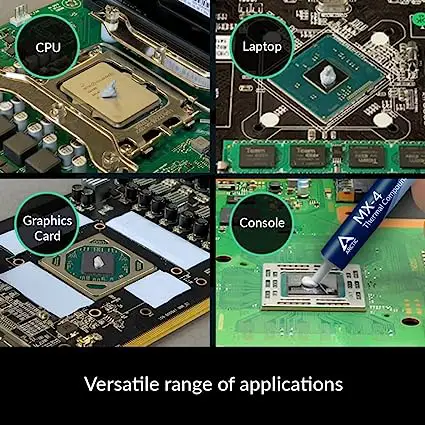
Pros and Cons of Using the Arctic MX-5
| PROS | CONS |
| It has 99.9 percent pure silver. | The paste dried out more than expected. |
| It will lower the CPU temperature by 3–12 C. | It requires curing to get the best temIt’sture. |
| to apply and remove. | |
| Non-electrically conductive |
Arctic Silver 5
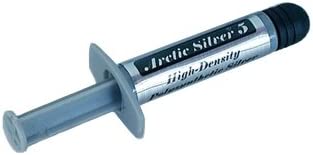
Final verdict
Considering both sides of the coin, it is fair to conclude that both Arctic MX-4 and MX-5 are high-quality thermal pastes.
The Arctic MX-4 thermal compound has excellent thermal conductivity and low thermal resistance. It glides smoothly across the CPU surface and is not electrically conductive. This makes it an ideal choice for most standard cooling applications, plus the little cost savings.
On the other hand, the Arctic MX-5 is a newer version of the thermal paste that offers higher thermal conductivity than the MX-4. It also has better durability and can withstand high temperatures. This makes it an excellent choice for overclocking or high-performance gaming.
Overall, I recommend you go for the Arctic MX-5 if you’re looking for a reliable and efficient thermal paste for general use. But when it comes to handling demanding cooling applications, it is hard to look away from the Arctic MX-5.
Meanwhile, it is difficult to argue against even two-degree temperature differences, of which the MX-5 has the edge over its predecessor because, in the world of CPU cooling, 2 degrees means a lot. Still, the fluidity of the MX-4 makes it my top choice among the two.
Have you used either of the products? This is a fantastic chance to let me know about your experience. I’ll be in the comments.

